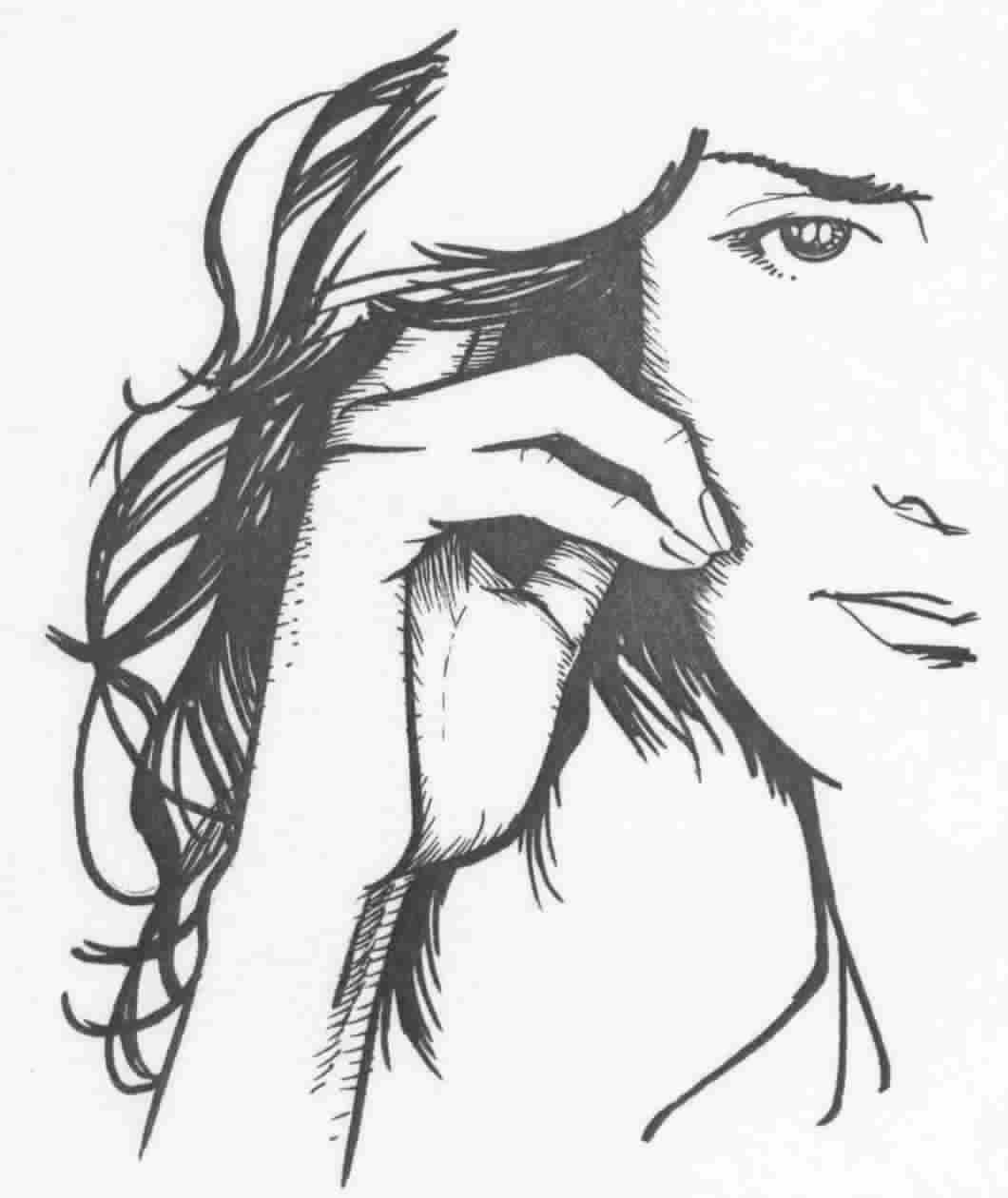LIP-PURSE

Still gazing at his hands, he pursed his lips a little, but
this time made no hissing sound. --Joseph Conrad
(Lord Jim; 1899)
Facial
expression. To evert, pucker, and round the lips in a
look of disagreement, scheming, or calculated thought.
Usage: The paramount message of lip-pursing is "thoughtful
dissentience"--i.e., "I disagree." The tightly screwed-out lips of the pig
snout show that a listener has gone beyond the pout of
uncertainty to a more dissenting frame of mind. As a
mood sign, the lip-purse reflects formation of an alternative verbal
reply in the brain's primary speech center, Broca's
area.
Anatomy. In the lip-purse, orbicularis oris,
buccinator, and direct labial tractor muscles of the lips
contract. The principal muscle, orbicularis oris, is a sphincter consisting
a. of pars marginalis (located beneath the margin of
the lips themselves), and b. pars peripheralis
(located around the lips' periphery, from the nostril bulbs to the chin). Pars
marginalis is uniquely developed in human beings for speech.
Observation. Because the
lip-purse signals mental resistance, speakers should immediately ask if
listeners disagree before continuing a verbal argument. Clearing unvoiced
resistance facilitates understanding. (N.B.: Moreover, listeners
will appreciate your intuitive grasp of their thought processes.)
Primatology. In the brain of our closest living relative, the chimpanzee, a motor area analogous to Broca's controls the rounded, pursed-lip movements used to make facial grimaces and emotional calls (Lieberman 1991). The pant-hoot cry of excitement is a case in point (Goodall 1990).
RESEARCH REPORT: "Apprehension, scheming, or mere disinclination to speak may be betrayed by tightly screwed [i.e., 'pursing of the'] lips" (Peck 1982:254).
Neuroanatomy. Pursed-lips is a gestural fossil (from the PRIMATE BRAIN) which unwittingly appears when we disagree. As quarrelsome words form in Broca's area, a call goes out through limbic (i.e., emotional) circuits to the brain stem's facial nerve (cranial VII). Forwarding the call, motor branches of the facial nerve instruct our lips to round and purse in preparation to disagree.
Neuro-notes. Pursed-lips is an orofacial gesture controlled, in part, by Broca's area, a finger-sized patch of neocortex involved in the production of words. It is often the first sign of disagreement.
See also TENSE-MOUTH.
Copyright 1999 - 2016 (David B. Givens/Center for Nonverbal Studies)